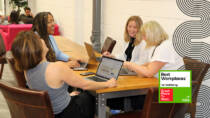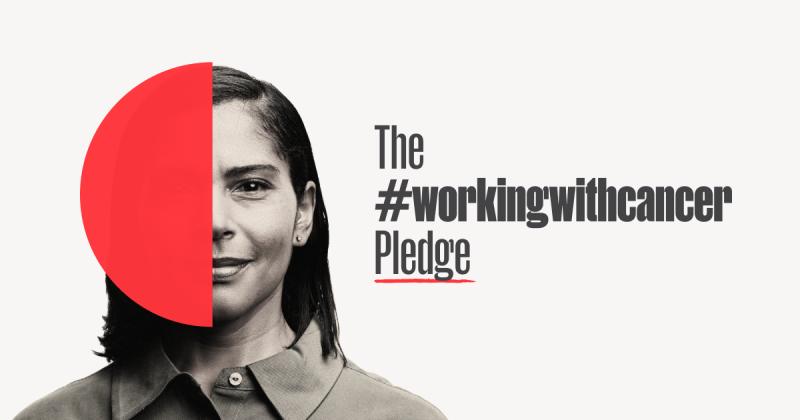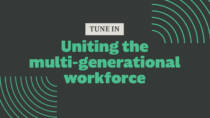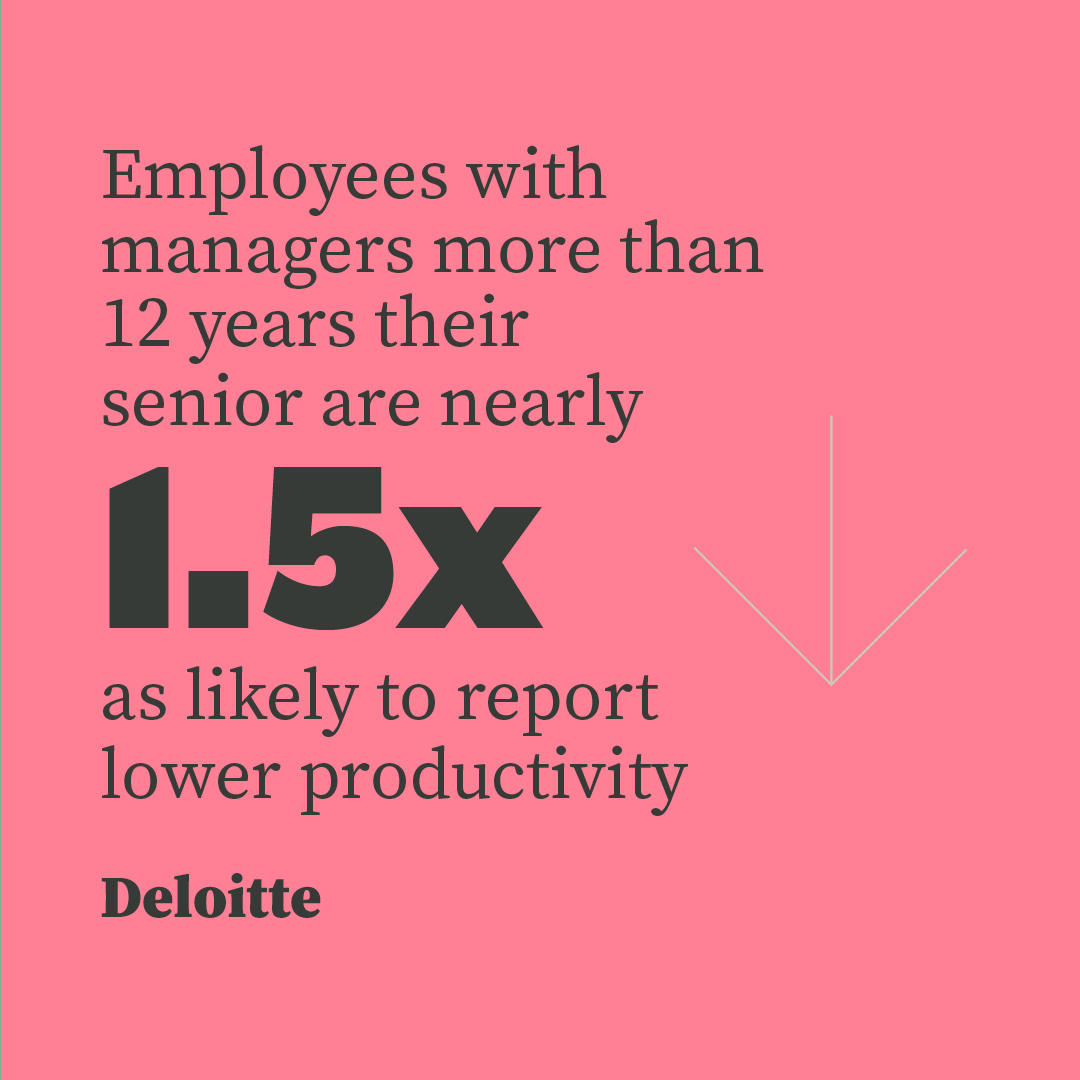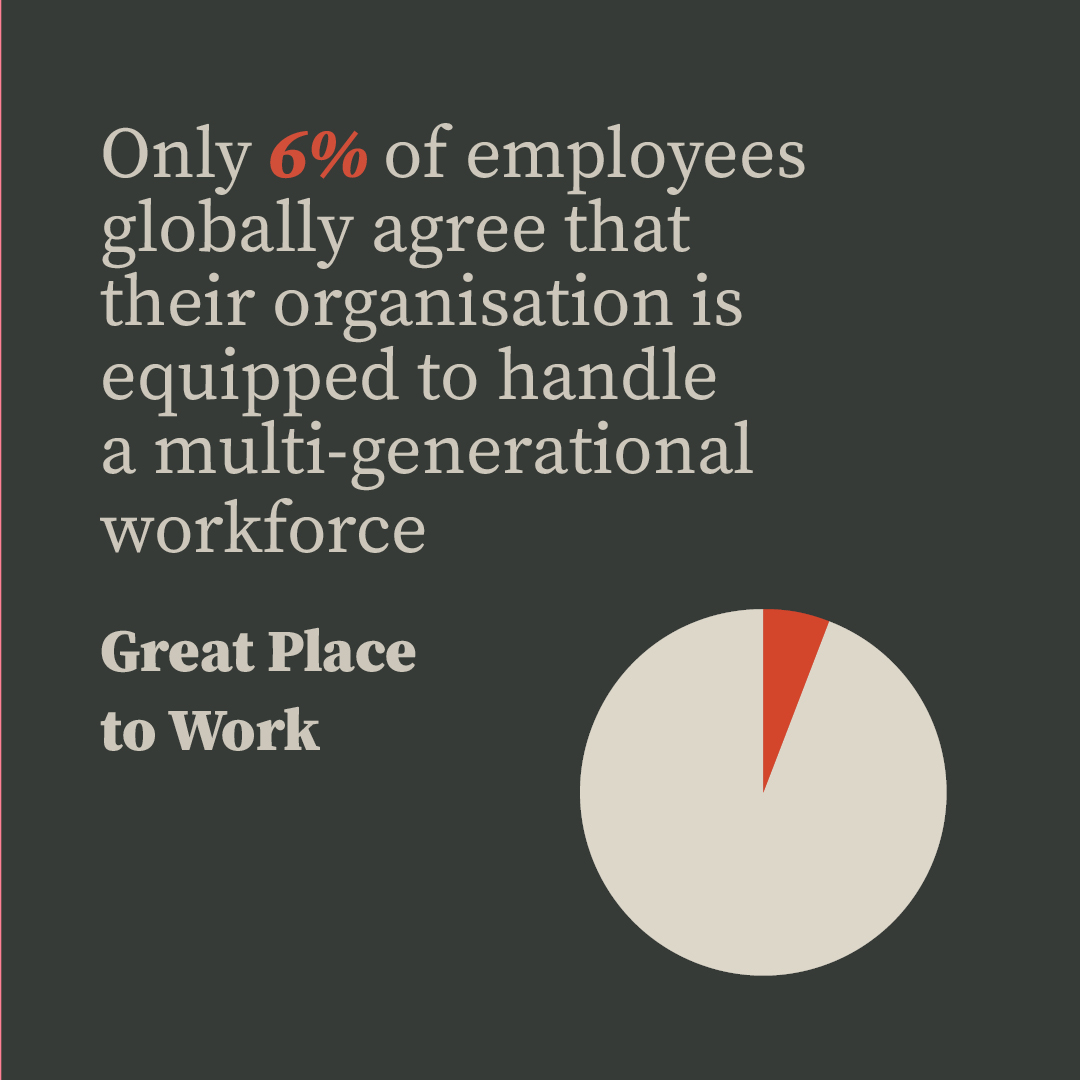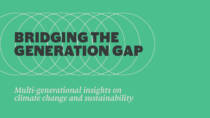Creating a culture of wellbeing
By Sally Pritchett
CEO
In this article, Sally Pritchett, our CEO, shares the initiatives that have helped us foster a culture of wellbeing, recently recognised by Great Place to Work.
We are thrilled that Something Big has once again been recognised by Great Place to Work as one of the UK’s Best Workplaces for Wellbeing this year. Wellbeing is not something we take for granted or just a box we tick once and move on from. On the contrary, we recognize the fragility of health and wellbeing and understand that it requires ongoing attention.
Here’s a brief overview of what we’ve been doing to take care of ourselves over the past year:
Physical wellbeing
Given our employees’ largely sedentary roles and the increase in remote work, it wasn’t surprising when our employee surveys revealed a decline in physical activity levels. We know that this is a challenge many businesses are facing, with one in four people in England doing less than 30 minutes of physical activity a week.
Of course, it’s not for employers to dictate their employees’ lifestyles. However, if back-to-back Teams calls and long hours at a laptop are causing unhealthy levels of inactivity, it becomes the employer’s responsibility to step in. And that’s exactly what we did.
As is often the case, the best place to start was an honest conversation with our team. We discussed the results from our employee wellbeing survey and explored ideas such as standing desks and walking meetings. We emphasised the health benefits of a daily 10-minute brisk walk, which can reduce the risk of early death by 15%. We encouraged everyone in the business to support each other in taking breaks from their laptops. This can be as simple as asking a colleague, “Have you taken a walk today?”
Following that, we launched our Big Walk challenge to coincide with National Walking Month, motivating the entire team to boost their step counts by setting a goal to collectively walk the length of the country and back again.
We achieved a 90% participation rate, increasing our average number of intentional physical activity days to 6 days per week – a 1.86 day improvement. Additionally, 55% of participants reported being inspired by the Big Walk to reduce their sedentary time.
Critical illness
1 in 2 of us will get cancer at some point in our lifetime, so it is vital that as employers we support our workforces through critical illness, be that their own or someone they’re caring for.
It’s been a difficult year for many of us at Something Big, from living through the realities of cancer treatment, caring for loved ones or working through the grief of those we’ve lost.
As employers, we can make these situations easier by showing empathy, being flexible, listening to the needs of individuals, encouraging preventative screening, raising awareness and critically, and creating a safe environment to have open discussions about this difficult and sensitive topic.
Sadly 50% of people with cancer are afraid to tell their employers. A proactive step to alleviate this concern is for employers to educate themselves and, like us, commit to signing the Working with Cancer pledge.
Mental wellness
With so much uncertainty prevailing outside our workplaces – financial concerns due to the cost-of-living crisis, global conflicts, and the rapid evolution of technologies like ChatGPT influencing the future of work – it’s understandable that employees are anxious about what lies ahead.
Employers can have significant influence on the mental wellbeing of their workforce, by fostering open and honest workplace cultures. Establishing psychological safety, offering platforms for employee voice, linking work to a greater purpose, and actively acknowledging and respecting contributions can all help.
At Something Big, we have maintained regular Time to Talk sessions, fostered an environment where employees feel safe disclosing neurodiversity, and supported flexible working arrangements.
Our leadership remains committed to transparency, providing ample opportunities for employee voice. We’ve also established clear pathways for employees to seek assistance when needed, ensuring a supportive environment for all.
Flexibility
Regardless of where anyone is within their career, work is just one aspect of our lives and needs to be balanced with other conflicting priorities. From raising a family to caring for loved ones, pursuing hobbies, side hustles, staying active, engaging in volunteer work, and more, it’s essential to carve out time in our lives for activities beyond our primary jobs.
Employers need to take a clear stance on flexibility, making flexible working arrangements accessible to all and adaptable to changing circumstances as employees lives ebb and flow around their changing priorities. We’ve always prided ourselves on our flexibility at Something Big, but we’ve continued to make arrangements accessible, transparent and equitable.
We know it’s not always easy to work around colleagues working different or restricted working hours. It requires careful planning and management. But we also recognise how much our team appreciates this flexibility and the significant reduction in stress it can bring to their lives.
We’re committed to making workplaces fairer, healthier, and happier through inclusive and effective communications. If you share this mission or need a partner to enhance your workplace culture, please get in touch. Let’s drive positive change together.
Q4 2024 Awareness Days Calendar
By Sally Pritchett
CEO
Download your free Awareness Days Calendar for Q4 2024.
As we begin to plan for the end of the year, it’s important to keep employee wellbeing, sustainability, and diversity and inclusion top of mind. Our downloadable Q4 2024 Awareness Days Calendar highlights key dates in October, November, and December to help you:
Wrap up the year on a positive note:
- Organise end-of-year employee wellness programs
- Celebrate your sustainability achievements
- Reflect on diversity and inclusion progress
- Engage employees in thoughtful discussions
- Acknowledge important events for colleagues and customers
Don’t miss the opportunity to end 2024 strong and lay the groundwork for an even better 2025.
If you need support maximizing these awareness days, get in touch to see how we can help.
Download our Key Awareness Days Calendar for Q4 2024
Tune In: Uniting the multi-generational workforce
By Sally Pritchett
CEO
We tuned in to the voices of the multi-generational workforce, uncovering strategies to improve relationships, enhance communication, and boost productivity.
The global population is ageing, resulting in the workforce becoming increasingly multi-generational, with up to five generations working side by side. And this shift is not without its challenges.
At Something Big, we strive to make workplaces fairer, healthier and happier for everyone. But with only 6% of employees agreeing that their leaders are equipped to lead a multi-generational workforce effectively, it’s time for businesses to ensure generational differences are positively impacting relationships, communication and productivity.
To create inclusive workplaces where employees feel safe to be themselves, do their best work, and thrive, we need to listen and learn from different communities, and so we provided a platform for these voices to be heard.
We were delighted to welcome Sophie O’Brien, Founder of Pollen and Tim Whitaker, Trustee and Director of Wise Age for a conversation on uniting the multi-generational workforce. Pollen is a platform dedicated to connecting junior talent with meaningful job opportunities and giving them the resources and guidance they need to succeed, while Tim is a consultant and writer on age and employment issues with various organisations.
Together we tuned in to the voices of the multi-generational workforce, uncovering strategies to improve relationships, enhance communication, and boost productivity.
Tackling harmful generational stereotypes
The workforce is ageing, with projections indicating that by 2050, one in four people in the UK will be over 65. At the same time, Gen Z is now entering the workforce in increasing numbers and is expected to make up 30% of the working population by 2030. During the conversation we discussed how individuals and organisations often make age-based assumptions, relying on stereotypes that can often be harmful, with age discrimination particularly affecting younger workers who are starting their careers and people aged 50 and over.
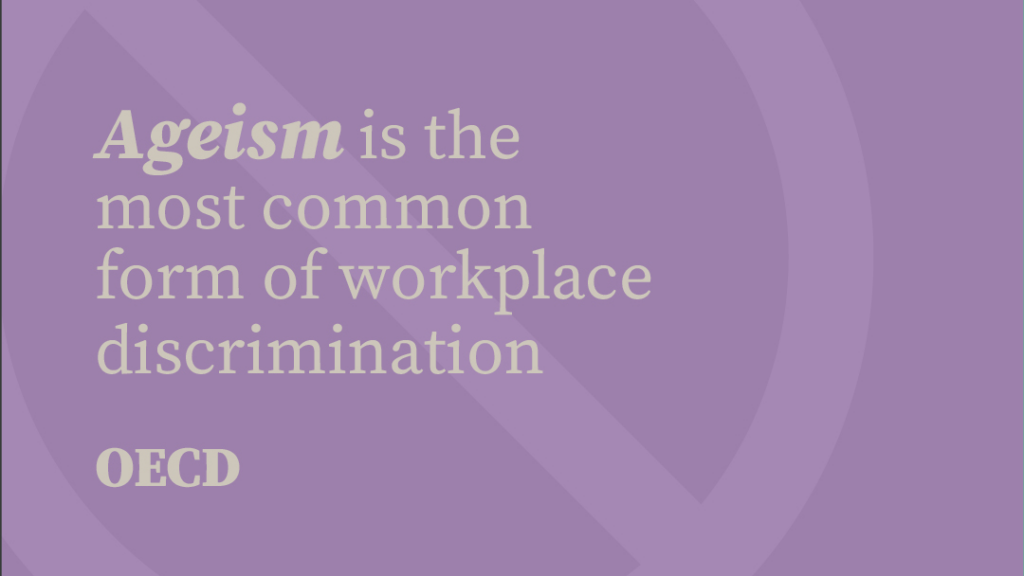
Organisations need to avoid blanket expectations for any generation. We discussed how all generations seek meaningful purposeful work and are now looking for greater flexibility, whether for a better lifestyle or caregiving responsibilities. Leaders and managers need to have human conversations on an individual level to discover what is motivating and hindering employees regardless of their age, and to address these needs.
Supporting Gen Z in the workplace
Sophie shared her experiences supporting Gen Z, who are now entering the workforce and looking to be heard. Gen Zers are often feeling frustrated from being stereotyped as lazy, entitled, and with short attention spans. Instead, Sophie’s experience has found a generation of researchers and multitaskers, who value productivity, are seeking better communication from their employers, and want the opportunity to contribute their ideas.
Organisations need to communicate clearly about where and how Gen Z employees can add value. We need to get better at listening to their ideas and providing opportunities for them to voice their opinions. We know that increased hybrid and remote working may be limiting the access of Gen Z to development opportunities, so mentorship and clear communication guidelines are essential.
Supporting older generations in the workplace
With around one in three UK workers aged 50+, older workers are the fastest-growing employment group. Organisations must learn to better recruit and retain older workers, who often face misconceptions about their flexibility, digital skills, and career trajectory. Ageism is all too often impacting older workers’ access to training and advancement, while bias and age discrimination is being internalised, leading to a lack of self-confidence.
Older workers want to be valued for their experience and knowledge and to be part of the inter-generational exchange. They are seeking flexibility, perhaps to manage health issues or caregiving responsibilities, but also for a better work/life balance. By addressing these needs and creating an inclusive culture that supports older workers, businesses can benefit from their valuable expertise and contributions.
Promoting better inter-generational communication
Effective communication is vital for building relationships, enhancing productivity, and creating successful companies. Whereas poor communication kills culture, erodes trust, and harms businesses. There is a generational communication challenge, as the etiquette of professional communications has evolved. It’s now essential to navigate the variety of different communication channels available without leaving anyone behind.
During the meeting, we discussed the following strategies to improve multi-generational communications:
Establishing clear communication guidelines
Organisations should establish clear communication norms and expectations to ensure everyone is on the same page. This would include guidance on:
- When an audit trail is required for formal communications
- When informal channels like instant messaging are appropriate
- Expected response times across different communication modes
While overarching guidelines are important, teams should also have the flexibility to determine the specific tools and styles that work best for their needs and dynamics.
Promoting cross-generational learning
Skill-sharing across generations could be highly beneficial for fostering effective communication. For example:
- Older workers can share their expertise on meeting etiquette, professional writing, and interpersonal communication skills.
- Younger employees can introduce and train their colleagues on newer communication tools, platforms, and best practices.
This sharing of knowledge not only improves communication but also promotes collaboration and understanding between different age groups.
Adapting communication styles
It’s important to recognize that communication formalities and response time expectations may differ across generations, potentially leading to misunderstandings.
- Communicators should adapt communication styles to the recipient’s preferences, rather than expecting everyone to conform to a one-size-fits-all approach.
- It will likely be a process of trial and error to find the right communication culture that works for each team and the business as a whole.
Effective communication is an art that requires intentionality and adaptability, especially in a multi-generational workforce. Businesses must take on the challenge of tailoring their communication approaches to meet the diverse needs and preferences of their employees.
Fostering multi-generational collaboration and enhancing productivity
We can’t sleepwalk into a cohesive multi-generation workforce, and it will require efforts beyond HR and DEI teams, with senior leaders across the business needed to make a meaningful change.
To enhance collaboration and boost productivity across generations, several strategies were discussed:
Engaging in meaningful conversations
Businesses need to go beyond surface-level staff satisfaction surveys and engage in deeper conversations with employees from different generations. Leaders need to actively listen to understand the issues and unique needs of each age group.
Managers should consider conducting structured career discussions to gain insights into individual goals, aspirations, and challenges. This open dialogue can help tailor support and development opportunities to better meet the diverse needs of a multi-generational workforce.
Flattening hierarchies and empowering all voices
One recurring topic was the challenge posed by traditional hierarchical structures. Companies that foster a more collaborative and inclusive culture often have flatter organisational structures, enabling better multi-generational collaboration.
In such businesses, there are opportunities for all employees, regardless of age or experience level, to contribute their ideas and perspectives meaningfully. Processes should be in place to ensure that every voice is heard and valued, promoting a sense of belonging and engagement across generations.
Redefining career paths
Traditional career paths often follow a hierarchical progression, which may not align with the evolving needs and aspirations of a multi-generational workforce. Businesses should explore ways to create alternative career paths that allow for more flexibility. For example, experienced workers nearing the end of their careers could transition into roles that leverage their expertise and knowledge, while stepping away from full-time, high-pressure roles. This approach not only retains valuable institutional knowledge but also empowers these employees to continue making meaningful contributions.
By nurturing a culture that values all generations’ perspectives and focuses on common goals like meaningful work and business success, organisations can foster collaboration among their multi-generational workforce. This, in turn, can boost productivity and drive innovation.
Uniting the multi-generational workforce
Bridging the generational divide requires a multi-faceted approach – dismantling harmful stereotypes, supporting the unique needs of different age groups, fostering open and inclusive communication, and actively promoting collaboration across generations.
While sensationalised generational rhetoric may attract attention and clicks, it is unhelpful and encourages an exaggeration of differences between generations. Instead, we need to focus on what unites the workforce – the shared desire for meaningful work, growth opportunities, work-life balance, and a sense of purpose.
We’re passionate about making workplaces fairer, healthier and happier for all through better communications. If you’re ready to make an impact on your workplace culture, get in touch to see how we can help you create a more collaborative, productive, and successful multi-generational workforce.
Watch the video: Uniting the multi-generational workforce
Bridging the generation gap: insights on climate change and sustainability
By Sally Pritchett
CEO
Climate change is arguably the defining issue of our time. But how do people from different generations perceive this threat?
One of the key challenges we hear about from our community of communicators is how to effectively talk about sustainability. Many are concerned about falling into corporate washing or greenwashing traps, while others are unsure how to make their communications resonate with their audiences without resorting to doom-and-gloom narratives that risk spiralling into negativity and anxiety.
As workplaces become increasingly multi-generational, a new challenge also arises. Those who have grown up with a constant awareness of the need for societal change to tackle the climate threat are now working alongside those who only discovered the impact of poor natural resource management and the resulting climate crisis in their later years. It’s reasonable to expect that these different generations have very different perspectives on sustainability issues, and therefore, our communication strategies may need to be tailored accordingly.
Commonly held stereotypes suggest that Gen Z and Millennials are highly concerned about the environment and willing to make sacrifices for sustainability. In contrast, Gen X is perceived as less engaged with the issue and cynical about the capability for large-scale change. Meanwhile, Baby Boomers and Traditionalists are often stereotyped as not taking climate change seriously, or perhaps not even believing the science, prioritising economic growth over environmental concerns. If these stereotypes were true, how could we bring these different perspectives together and align a multi-generational workforce on a single company-wide mission towards a more sustainable future?
However, we know that stereotypes are often inaccurate, so to test these ideas we surveyed and interviewed individuals across the generations. Our research explores generational perspectives on sustainability and climate change. Understanding these nuances can help us as communicators to bridge the gap and inspire collective action.
So, how do different generations truly view sustainability, the climate crisis, and their influence around it? Let’s find out…
Generational perspectives on climate change and sustainability
Traditionalists
“I would say I am anxious for my children, grandchildren and great-grandchild.”
- Born before 1945, Traditionalists are aged 79 and older.
- They make up approximately 5-10% of the current workforce.
- On average, Traditionalists report becoming aware of the importance of the environment and the reality of climate change in their 50s.
- On a scale of 1-10, they rate their anxiety level around climate change as 7. This is the lowest rating, tied with Gen X and Gen Z.
- They believe the main causes of climate change are industry and transport emissions.
- Their top action to reduce climate change in the next decade is lowering emissions from transport, such as adopting electric vehicles.
- They felt that their generation could have recycled more and better-protected forests and other natural resources.
- Traditionalists didn’t use the terms ‘carbon’ or ’emissions’ and instead talked about pollution.
Baby Boomers
“I don’t think about [climate change] all the time. But it does make me anxious, not for me, but for my children and their children. The powers that be need to do something.”
- Born between 1946 and 1964, Baby Boomers are currently aged 60-78 years old.
- They make up approximately 30-40% of the current workforce.
- On average, Baby Boomers report becoming aware of the reality of climate change in their early 30s.
- Among all generations, they reported the highest levels of climate anxiety, rating themselves an 8 on a scale of 1-10.
- They identified the main causes of climate change as human nature and greed, an overreliance on fossil fuels, and high levels of industrial emissions.
- Their top actions to combat climate change are reducing or eliminating fossil fuel use and transforming transportation systems, such as electrifying vehicles, using biofuels, and improving public transport.
- When asked what their generation could have done differently to protect our planet, respondents were nearly unanimous in wishing for better education, and that industry and government should have listened to science and acted much more quickly.
“We were encouraged to try to do everything – gain an education, build a career, look after a family, travel, and more – all while it was still primarily the responsibility of women to manage these roles. It was nearly impossible to achieve all these things without relying on items that made this load easier, leading to a preference for convenience.”
Gen X
“We needed more education earlier about the environmental damage from our actions. We also inherited an oil/car-dependent culture.”
- Born between 1965 and 1976, Gen Xers are currently aged 48-59 years old.
- They make up approximately 35-40% of the workforce.
- On average, Gen Xers report becoming aware of the importance of the environment and the reality of climate change in their early 30s. However, there was a wide range, with some reporting learning in childhood or their teens, and others not until recent years when in their 50s.
- On a scale of 1-10, the average anxiety level is 7 (tied for the lowest with Traditionalists and Gen Z).
- Human nature and greed were clearly identified as the main causes of climate change. However, this age group included the largest number of respondents who did not believe in or overtly question the human impact on climate change.
- To reduce climate change in the next decade, they cited the reduction or ban of plastics, reducing reliance on fossil fuels, and decreasing consumer consumption as the most important actions.
- When asked what their generation could have done differently, they suggested that better education around climate change would have enabled and encouraged faster action.
“I’m very glad I don’t have children to hand this planet to – the guilt would be too much!”
Millennials
“No matter how much effort I make as an individual, it is a drop in the ocean compared to big polluters. It makes me feel hopeless and powerless.”
- Born between 1977 and 1995, Millennials are currently aged between 29-47 years old.
- They make up approximately 30-35% of the workforce.
- On average, Millennials report becoming aware of the importance of the environment and the reality of climate change in their early teens, though many reported learning about it as small children or felt that they grew up always knowing about it. This shows that it’s not just the youngest generations who grew up with the looming reality of climate change, but many Millennials who are now reaching middle-age, feel that they did too.
- On a scale of 1-10, their average anxiety level is 7.7, this is the second highest, just slightly lower than that of Baby Boomers.
- Millennials overwhelmingly cited callous human greed and selfishness as the main causes of climate change. Industry and government inaction were also common responses.
- To reduce climate change in the next decade, Millennials largely called for better support for renewable or green energy and a reduction in consumer consumption. There were also strong calls for governments to toughen up on industry by enacting stronger regulations, fines, and sanctions for those that resist change.
- When asked what their generation could have done differently, Millennials reported wishing they had acted sooner, through voting, speaking up, educating others, and protesting. There is also a clear sentiment of a feeling of powerlessness and believing that older generations still hold the capability to enact significant change.
- While Millennials wish they had acted sooner and sometimes feel powerless, they haven’t given up on finding solutions to the climate crisis. This generation proposed the widest variety of ideas to tackle climate change, including supporting green financing, renewable energy development, carbon capture technologies, and reducing consumption. Despite the challenge ahead of them, their determination to tackle this issue remains strong.
“We need to find a way to make people understand how it affects them personally otherwise they don’t care, frankly.”
Gen Z
“My generation are waking up to the long-term issues and hopefully will push for change in the future.”
- Born between 1996 and 2015, Gen Z is currently aged 9-28 years old.
- They make up a small percentage of the workforce, but this is set to rise to 30% by 2030.
- On average, Gen Zers report becoming aware of the importance of the environment and the reality of climate change at age 10, with many respondents citing learning about it in their early years of schooling.
- On a scale of 1-10, their average anxiety level is 7. Despite often being thought of as the most ‘anxious’ generation – they reported among the lowest levels of anxiety, tied with Traditionalists and Gen X.
- They identified the main causes of climate change as people’s lack of willingness to change and a lack of respect for our planet, as well as our heavy reliance on fossil fuels.
- To reduce climate change in the next decade, they called for investment and development in new green energy solutions and reducing or stopping the manufacture of plastic, particularly single-use plastics.
- When asked what their generation could have done differently, Gen Z respondents suggested that they needed to learn more about climate change and consume less.
- Contrary to stereotypes, Gen Z did not emerge as the activist generation in our research. Instead, were the most vocal about protesting and driving revolutionary change to address climate issues.
“I can’t have that much impact on it [climate change] or control over it so I try not to worry about it too much, plus lots of adults don’t seem to be that worried about it.”
How to communicate about sustainability issues across the generations
Our research shows commonalities and differences in how different generations view the climate crisis and sustainability issues. While high levels of anxiety cut across age groups, perspectives on causes, solutions, and personal control vary. To inspire collective action, communicators must move beyond stereotypes and tailor communications that reach across the five generations.
Avoid stereotyping and acknowledge shared concerns
Our findings show high levels of climate anxiety across all generations, contrary to stereotypes that older cohorts are apathetic or unaware. Gen Xers displayed the widest range of views, from deep concern to outright denial. Be prepared to address varying levels of awareness and scepticism.
Use familiar, relatable language
Avoid overly technical jargon. Within our respondents, Traditionalists did not use terms like “carbon” or “emissions”, preferring words like “pollution”. Tailor your language to resonate across all the generation’s lived experiences and understanding of climate change.
Prioritise education and awareness
Baby Boomers were nearly unanimous in wishing for better education, and many Gen Xers regretted not receiving better environmental education earlier in life. Gen Zers said they needed to learn more about climate change. Develop targeted campaigns to help fill knowledge gaps and address misconceptions.
Highlight actions they can take in their daily lives
Traditionalists feel their generation could have done more to recycle and protect natural resources. Gen X, Millennials and Gen Z all reported that they need to reduce consumer consumption. Emphasise practical steps that can be taken now.
Empower them to drive change within their spheres of influence
Despite reporting a feeling of powerlessness, Millennials have not given up and continue proposing solutions like green financing and carbon capture. Emphasise their ability to be changemakers by supporting and amplifying these solution-oriented mindsets. While some Millennials feel powerless against older generations, remind them of their collective voice and ability to influence through their roles as employees, consumers and advocates.
Read more
We’re raising our voice on multi-generational workforces, helping you to understand the challenges and opportunities a multi-generational workforce presents and how your business can create an inclusive workplace for #GenerationAll.
Bridging generational divides for collective climate action
While generational divides on climate change can make for attention-grabbing headlines, our research shows there is more that unites us than divides us. When Time magazine named Greta Thunberg their Person of the Year in 2019, they called her a “standard bearer in a generational battle, an avatar of youth activists across the globe.” However, exaggerating these generational differences is at best unhelpful, and at worst, dangerous.
Our findings clearly show that climate anxiety cuts across the generations, dispelling stereotypes of older generations being apathetic or unaware. Traditionalists and Baby Boomers alike express deep concerns about the planet’s future, often rooted in worries for their children and grandchildren. Meanwhile, younger cohorts like Millennials and Gen Z remain determined to find solutions, despite sometimes feeling powerless against entrenched systems and inaction.
Effective communications must move beyond what divides the generations and instead bring people together around shared values and a collective sense of responsibility. Rather than continuing divisive narratives, we need to amplify the positive stories that inspire change, continue prioritising education to bridge knowledge gaps, and tailor our messaging to resonate with each generation’s lived experiences.
Stereotypes are not only inaccurate but counterproductive in rallying a unified front against the climate crisis. By acknowledging our common anxieties, proposing tangible actions, and empowering all generations to drive change within their realms, we can harness the power of our diversity and work towards a more sustainable future for all.
About the data
This article is based on data collected from a total of 90 respondents through a combination of 63 online surveys and 27 conducted interviews by Something Big employees. The data collection period spanned from April to May 2024. The survey was shared by Something Big team members via public social channels, across business communities and through personal relationships. The demographics and backgrounds of respondents are varied; however, they will be influenced by the network and connections that exist around our business.
The respondents were categorized into five generational groups as follows:
- Traditionalists (79+): 7.78%
- Baby Boomers (60-78): 14.44%
- Gen X (48-59): 31.11%
- Millennials (29-47): 27.78%
- Gen Z (9-28): 18.89%
The gender distribution among the respondents was recorded as:
- Woman: 50%
- Man: 24.44%
- Genderfluid/Genderqueer: 1.11%
- Non-binary: 0%
- Prefer not to answer: 0%
- Unknown / not recorded: 24.44%
How to effectively communicate with a multigenerational workforce
By Sally Pritchett
CEO
How can you help your communications resonate with a multigenerational workforce?
In today’s world, people are living and working for longer. For the first time in history, five generations are currently in the workforce, each with their own preferred ways of working and communicating.
While a multigenerational workforce brings diverse skills, experiences and perspectives, it also presents challenges – one of which is communication. While it’s important not to make assumptions and remember everyone has their own preferences, there are noticeable differences between each generation’s communication style. For example, Baby Boomers typically prefer a balance between email, phone calls and face-to-face communications, whereas Gen Z typically prefer direct personal communication and short, digestible digital messages.
With each generation valuing different communication styles, ensuring everyone feels informed, heard, and engaged is crucial. But as a communicator, what can you do to help your communications resonate with a multigenerational workforce?
Use various communication channels
Consider the different communication channels available to you and how you can use these to reach employees better. For example, if you are communicating a company-wide update via email, could you share this on other internal channels too? If appropriate, condense your email down and share via Teams or your internal social channel as well to help keep everyone informed.
Give employees flexibility on how they communicate with you
When it comes to communicating with employees, it’s not just one-sided – you should give colleagues the opportunity to share their thoughts, provide feedback, and raise concerns in ways that they feel comfortable. Where possible, consider offering employees different ways to communicate with you. For example, if you’re asking employees to contribute their ideas on a project during a meeting, you could also let them share their thoughts via email afterwards.
Balance digital and in-person communications
Using the right balance of digital and in-person communications can help you better engage employees with different preferences and ways of working. However, it’s important to make sure you are using the best approach for what you are trying to achieve.
While messaging platforms such as Teams are great for quick updates, it may be better to have in-depth discussions or more personal conversations in person. When communicating virtually with employees, always make sure you are clear and concise to ensure your communications are accessible to all.
Continue reading:
If you’re looking to develop engaging communications that resonate with a multigenerational workforce, we can help.
Navigating the multi-generational workforce within SMEs
By Sally Pritchett
CEO
In this video, we navigate the challenges of a multi-generational workforce within SMEs, offering practical solutions to overcome communication hurdles.
With up to five generations present in the workforce – as Gen Z enters working age and discussions about a new pension age of 71 begin – the age gap between your youngest and oldest employees is widening, presenting both a challenge and an opportunity.
In this recent session tailored specifically for HR leaders within SMEs, we addressed the challenges stemming from an increasingly age diverse workforce. From talent attraction to productivity, company culture, and fostering diversity, we discussed practical insights and real-world solutions.
We examined the critical issue of retaining experienced employees to avoid ‘history and wisdom walking out the door’, particularly creating a challenge in sectors such as healthcare, where invaluable knowledge is at risk of being lost with an ageing workforce and retiring staff. Additionally, we explored the difficulties many businesses face in recruiting, and then retaining, Gen Z talent.
We would like to thank Daniel Broome, Strategic Director from People Puzzles, for joining the session and sharing his perspectives. If you’d like to connect with Daniel, please reach out to him on LinkedIn.
Five ways to improve collaboration within a multigenerational workforce
By Sally Pritchett
CEO
Learn how to foster collaboration across generations in the workplace with these five practical strategies.
For the first time in history, five different generations are working together. While having a range of ages in the workplace brings diverse perspectives, ideas, and experiences, it also presents new challenges that employers haven’t faced on this scale before.
One of the biggest challenges multi-generation workforces present is around communication. With each generation typically having different communication styles, communication barriers are forming between employees. These barriers can impact employees forming positive work relationships, resulting in reduced collaboration and productivity.
According to the London School of Economics, employees with age gaps of more than 12 years with their managers are 1.5 times more likely to report lower productivity. While this could be partly down to different ways of working and communicating, negative stereotypes and perceptions could also play a part in employees not working together.
With the impact of a multi-generational workforce already being felt in many businesses, what can your business do to help improve collaboration between employees?
Help employees understand generational differences
Bridging the gap between different generations starts with helping employees understand what generational differences look like in the workplace. If employees don’t know how their colleagues prefer to communicate or why they work in a certain way, they could make assumptions or stereotype someone based on their age. Educating your workforce on generational differences can help prevent employees from making these harmful stereotypes, which in turn can help to improve collaboration and bridge the productivity gap.
Create an environment of open communication
Creating a safe environment where discussing ideas and sharing different perspectives is encouraged can help nurture a more collaborative workplace culture. When employees feel safe to speak up and share their thoughts, everyone gets a chance to bring their unique experiences to the table and learn from others. This can help employees work together more productively as they can learn from one another while working to achieve a common goal.
Encourage skills and knowledge sharing
While a multigenerational workforce presents certain challenges, it also brings huge opportunities. One of which is the opportunity for skills and knowledge sharing. While older generations may have extensive knowledge from years of experience in a particular industry, younger generations may bring new perspectives on ways to do things into the workforce. Encouraging employees to collaborate and share this knowledge not only helps employees develop their own skills – it can also lead to better creativity and problem-solving.
Take practical steps to support employees working together
Alongside educating employees on generational differences, providing more opportunities for connection and collaboration can help bring together employees from different generations. For example, skills workshops and knowledge-sharing sessions are a great way to get employees together to learn from one another.
With many businesses now working in a hybrid way, online collaboration is more important than ever. However, some employees may not feel confident using online tools and software. Offering training and support to all employees ensures everyone can contribute in this way, improving online collaboration between employees.
Introduce mentoring (and reverse mentoring)
Mentoring is a great way to bring employees from different generations together. It gives employees an opportunity to build positive, supportive relationships that benefit both the mentor and mentee. As well as introducing traditional mentoring opportunities, you should also consider reverse mentoring – where employees early on in their careers mentor more senior employees.
By giving employees opportunities to better understand and learn from one another, mentoring can help build respect between employees from different generations, break down stereotypes, and encourage open communication.
Ultimately, the key to improving collaboration is going beyond stereotypes and encouraging flexibility in working practices. Enabling different communication methods within the workplace and helping your workforce better understand one another can help employees collaborate more effectively and find good compromises that work for both parties.
Continue reading:
If you want to start the conversation about collaborative ways of working with your employees, we can help create engaging communications that resonate with every generation within your workforce. Talk to us.
Tune In: Uniting the multi-generational workforce

Our CEO Sally Pritchett will be joined by two expert speakers for an insightful exploration into the voices of the multi-generational workforce – uncovering strategies to improve relationships, enhance communication, and boost productivity.
Join the guestlist: https://www.tickettailor.com/events/somethingbig/1216229
Unraveling ageism and workplace age discrimination
By Sally Pritchett
CEO
Ageism is the most common form of workplace discrimination, but it is not often talked about. It’s time for that to change.
With five different generations working together for the first time, age discrimination is something that is particularly affecting both younger workers who are starting their careers and people aged 50 and over.
But what can we do to help as communicators? It starts with increasing our understanding of what age discrimination is, and what we can do to create safer, healthier and happier workplaces for employees of all ages.
What is age discrimination?
Age discrimination occurs when someone is unfairly disadvantaged based on their chronological age. In the UK, age is a protected characteristic set out in the Equality Act.
Ageism refers to treating someone unfairly due to their age, including negative stereotypes, prejudice, or discrimination. In the workplace, this discrimination often manifests through biased hiring practices, limited advancement opportunities, and unequal treatment.
One in three people in the UK report experiencing age prejudice or age discrimination.
Centre for Ageing Better
Typically, ageism is U-shaped across a person’s lifetime, with the youngest and oldest workers most likely to suffer from age-based discrimination.
Despite one in three people in the UK reporting experiencing age discrimination, very few cases are prosecuted under the Equality Act, indicating a lack of seriousness in addressing this issue.
In the UK, like across much of the world, our population is undergoing a massive age shift. By 2050, one in four people will be over 65. Among countries with ageing populations, raising retirement ages and extending working lives is widely viewed as an economic necessity. This means that age diversity in the workplace is set to continue to widen.
Age discrimination against older workers
Older workers, including Gen X (those born between 1965-1976), Baby Boomers (1946-1964) and Traditionalists (1945 and earlier) often report encountering age-related stereotypes and myths that can undermine their confidence and capabilities.
These negative stereotypes influence not only how people are treated by others, but also how people view their own ageing. Stereotypes like technological ineptitude or resistance to change can marginalize the contributions of older workers and restrict opportunities for their career progression.
The workplace is an all-too-common setting for ageism, and negative attitudes towards older workers risk harming not just older people but the economy at large. With a third of the workforce now over 50, ageism risks jeopardising business success and economic growth.
A study found that 52% of over 50s who have searched for work in the past five years believe their age made employers less likely to hire them, exacerbating feelings of exclusion and diminishing morale in the workplace.
People in their 50s and 60s most commonly experience age discrimination in the workplace.
Centre for Ageing Better
In another recent study, 11% of workers over the age of 50 said they have had comments or ‘jokes’ from colleagues or managers relating to their age, 4% said they have considered leaving their job because they feel they are discriminated against because of their age, and 29% don’t think their workplace values older workers.
Negative age stereotypes are also associated with worse health outcomes, including a reduction in longevity and an increased risk of dementia. Along with age discrimination in society, internalised ageism can discourage older workers from embracing the behaviours and opportunities that would enable them to fully participate within the workforce.
Age discrimination against younger workers
Going back at least 2,500 years, there’s a longstanding tradition of older generations pointing fingers at younger people for society’s troubles. Now, as Gen Z (those born between 1996-2015) steps into the workforce, they find themselves bearing the brunt of these accusations, just like Millennials (born between 1977-1995) did before them.
Younger employees can be perceived as lazy, less reliable, less organised, selfish, and poorly motivated simply because of their age. This can result in them being overlooked for training opportunities, greater responsibilities, and promotions. Younger workers also tend to receive lower pay and benefits relative to similarly experienced older workers and tend to be at greater risk of being laid off during a downturn.
A study across the US, UK, France, and Germany found that 52% of younger employees had witnessed or experienced ageism in the workplace
Celebrating a multi-generational workforce
Communicators have a pivotal role to play in breaking down barriers and creating workplace cultures where people of all ages are valued, empowered, and able to flourish. By challenging age-related biases and fostering an environment of respect and appreciation, organisations can look to unlock the full potential of their workforce.
One in five employers think age discrimination occurs in their organisation.
Centre for Ageing Better
If you’re looking for support in communicating with employees across diverse generations and building a cohesive culture regardless of age, talk to us. Together, we can break down barriers and create workplace cultures where people of all ages are valued, empowered, productive and able to flourish.
Join the conversation
Tune In: Uniting the multi-generational workforce

Our CEO Sally Pritchett will be joined by two expert speakers for an insightful exploration into the voices of the multi-generational workforce – uncovering strategies to improve relationships, enhance communication, and boost productivity.
Join the guestlist: https://www.tickettailor.com/events/somethingbig/1216229
Unifying the multi-generational workforce
By Sally Pritchett
CEO
We're raising our voice on multi-generational workforces. Find out how you can create an inclusive workplace for #GenerationAll.
Workplaces are becoming more multi-generational – for the first time, five different generations are working together. From Gen Z to traditionalists, each generation brings its own perspectives, experiences, and preferences to the workplace. Understanding these differences can help us create generationally inclusive workplaces where everyone feels like they belong.
These generational differences, combined with negative stereotypes and misconceptions, are affecting employee relationships. However, only 6% of organisations strongly agree their leaders are equipped to lead a multi-generational workforce effectively. Businesses need to get ready to support a changing workplace to ensure generational differences positively impact relationships, communication and productivity.
For the next month, we’re raising our voice on multi-generational workforces. We’ll be helping you understand the challenges and opportunities a multi-generational workforce presents and how your business can create an inclusive workplace for #GenerationAll.
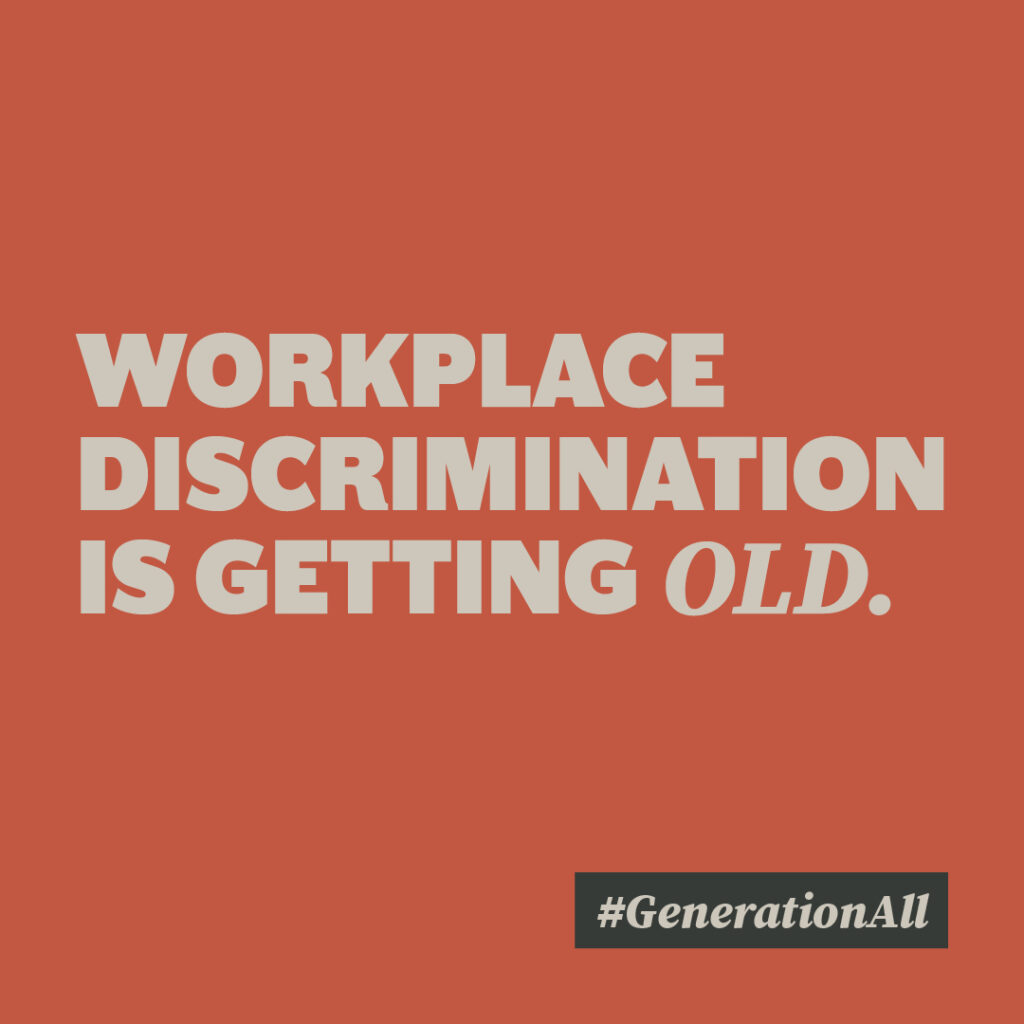
Expand your knowledge
Unraveling ageism and workplace age discrimination – Ageism is the most common form of workplace discrimination, but it is not often talked about. It’s time for that to change.
Five ways to improve collaboration within a multigenerational workforce – Learn how to foster collaboration across generations in the workplace with five practical strategies.
Join the conversation
Tune In: Uniting the multi-generational workforce

Our CEO Sally Pritchett will be joined by two expert speakers for an insightful exploration into the voices of the multi-generational workforce – uncovering strategies to improve relationships, enhance communication, and boost productivity.
Join the guestlist: https://www.tickettailor.com/events/somethingbig/1216229
Raising the profile of HR: strategies for shaping perception and impact
By Sally Pritchett
CEO
HR has never been more essential. But how can you elevate the profile of HR to drive transformative change, foster a thriving organisational culture and begin to change the professional stereotype?
With global uncertainty – conflicts, climate change, and economic struggles – employees are navigating tough times. They’re also increasingly seeking a stronger sense of belonging and purpose in their work. On top of this, challenges such as multi-generational workforces, a healthcare system under extreme pressure, and a growing burnout and mental health crisis are compounding the difficulties for HR. And ever present are the rapid technological changes and heightened concerns about AI and automation. These all combine to make HR’s role more vital – and complex – than ever.
Never more has HR needed to be positioned as a strategic partner, contributing valuable insights to decision-making.
Examining the reputation of HR
On the 19th April, we were delighted to host a virtual discussion for HR leaders focusing on raising the HR profile both externally and internally. Our CEO and Co-Founder, Sally Pritchett was joined by expert in HR PR, Kay Phelps, and together they discussed the impact of the negative media narrative on HR.
Kay shared a range of recent headlines from ‘What’s the point of HR?’ (FT Podcast) and ‘How the HR monster destroyed the workplace’ (Telegraph) to the rather depressing ‘Why everyone (still) hates HR’ (TLNT) and ‘HR viewed as least productive department by employees’. (HR Magazine).
Kay and Sally reflected on the adage ‘sticks and stones can break my bones but words can never hurt me’ suggesting that in this case, it appears that words are hurting the professional reputation of the HR function with 83% of HR professionals believing that HR is suffering from a tarnished reputation (Cezanne/HR Ninja research) and 54% of HR professionals feeling they rarely or never receive recognition for their efforts.
But there’s evidence that the damage is far worse than purely this tarnished reputation within organisations with poor and ever-diminishing investment in HR clearly out of balance with other functions.
Average HR function spend (as a percentage of revenue) stands at just 0.76% in comparison to other better-funded functions like Finance achieving 1.30%, IT at 3.25% and even marketing (a previously also function challenged by its reputation as a colouring in the department) now achieving a whopping 7.5%. (Gartner research)
Worst still, this underfunding is potentially set to worsen as 25% of 2023 HR budgets decreased year on year, (adding to a decrease of 12% in the previous year). (Fortune)
Strategies for shaping perception and impact
HR’s role in the business is expanding rapidly, encompassing critical areas such as workplace culture, diversity, equity, and inclusion (DEI), employee well-being, and talent acquisition. This includes fostering a sense of inclusion, belonging, and psychological safety, as well as aligning the workforce with the organization’s purpose and creating fulfilling roles. HR is also tasked with navigating the complexities of hybrid working arrangements, engaging a diverse workforce, and ensuring a seamless employee experience from start to finish. Furthermore, HR plays a pivotal role in talent retention amidst a competitive landscape, bridging generational gaps, supporting executive development, and preparing for the AI-enabled future of work. Amidst organizational transformations, HR juggles these responsibilities alongside redundancy programs, restructures, and job redesigns. The scope of HR’s remit is ever-expanding.
With HR being the least funded function and investment headed in the wrong direction whilst the remit and complexity of strategic HR’s role growing, Sally and Kay were keen to create a circuit breaker, seeking practical and tangible ways to help HR leaders move forward.
Sally reflected on a similar challenge a decade ago in her career, supporting a shift in the reputation of a marketing function including successfully increasing team size, budget and strategic profile within the business after three years of educating the wider business, shifting narrative from output (delivery) to impact (the difference made).
Kay and Sally shared their advice on building personal profiles, leveraging external media, engaging in the HR award landscape, educating their internal stakeholders and demonstrating their strategic contribution.
To find out more about their advice, watch the video below, or book a call to talk about your challenges with Sally here.

